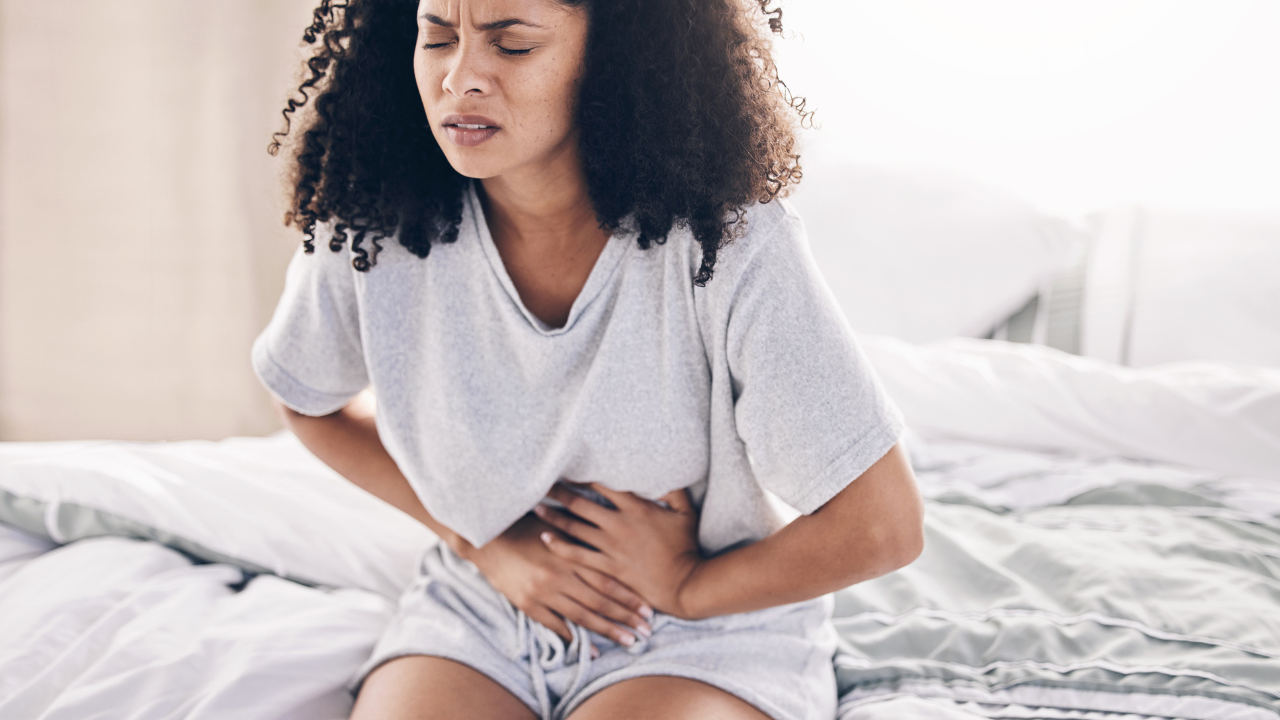4 Signs an Endometriosis Flare-Up is Imminent
One of the most challenging things about having endometriosis is its unpredictability. Endometriosis flare-up symptoms can cause GI symptoms, inflammation, and pain that can be debilitating. For some endo warriors, an endometriosis flare-up can hit around the time of ovulation or during menstruation. Many others might experience an endo flare anytime, usually without warning.
But what if you could predict when your next flare-up will occur? While there’s no sure-fire way to be 100% certain, there are signs and symptoms you can look out for that can help! I’ll answer this along with common questions, such as “How long do endometriosis flare-ups last?” and “What causes endometriosis flare-ups?” Now, let’s gain a better understanding of your endo flare-ups!
What Causes Endometriosis Flare-Ups?
If you’ve dealt with endo for a long time now, you’re all too familiar with endometriosis flare-up symptoms. You also know that the cause of endometriosis is still undetermined, and flare-ups can happen at any time. However, some things can encourage proliferation or make symptoms more intense or frequent.
These are some of the factors that can contribute to your next endometriosis flare-up:
Excess Alcohol o Caffeine Intake
Looking for ways to ease those frequent flare-ups? Limit your alcohol and caffeine intake! Excessive caffeine consumption has been linked to increasing estrogen and lowering testosterone levels. These hormone levels can directly correlate with the development of endo. Alcohol intake can also affect your hormones by turning more androgens into estrogen. Consuming alcohol or caffeine in excess can worsen endometriosis flare-up symptoms, so it’s all about moderation.
Imbalanced Diet and Inflammatory Foods
As an endometriosis dietitian, this is my specialty! Things like high cholesterol, high blood sugars, nutrient deficiencies, and excess saturated and trans-fat intake can affect endo flare-ups. When your diet is high in these inflammatory foods, this means more inflammation in your body, which leads to immune system dysfunction. This is where endo proliferation increases and triggers those painful and uncomfortable endometriosis flare-up symptoms.
High Levels of Stress
When you’re stressed, it affects your body not just mentally but physically as well. High stress levels can negatively impact pelvic floor function, muscle tension, immune function, and hormones. Your body will need more inflammation-fighting nutrients like potassium, magnesium, and B vitamins. Focus on stress-relieving activities like yoga, movement, journaling, and checklists. You can also try supplements such as ashwagandha, magnesium glycinate, and l-theanine.
Not Getting Enough Sleep
If you’re dealing with disrupted or lack of sleep, it takes a toll on your body. Not getting enough sleep can increase inflammation, disrupt serotonin and endorphin levels, and increase muscle tension. All of these symptoms can lead to an endometriosis flare-up. Drinking sleepy-time tea or taking supplements like melatonin/herbatonin, l-theanine, and magnesium glycinate can promote sleep.
Now that you have a better understanding of what can trigger an endometriosis flare-up, let’s go over how long you can expect one to last.
How Long Do Endometriosis Flare-Ups Last?
How long endometriosis flare-ups last depends on each individual person. Some endo warriors might have a flare-up that lasts for an afternoon, while others might deal with it for several days to weeks. Some experience flare-ups during their menstrual cycle or ovulation for a few days, and others might deal with increased inflammation that triggers flare-ups that last a few weeks. Everyone has a different experience with endometriosis flare-up symptoms, varying in length across the board.
Endometriosis Flare-Up Symptoms and Signs To Look Out For
While endo flare-ups can seemingly come out of nowhere, there are a few things to look out for to get some sort of indication of what is on the way. Taking control of your endo means tuning into your body and knowing your signals that point to an endometriosis flare-up. This way, you can better prepare yourself and learn what triggers flare-ups for your endo (and find that much-needed relief!).
Here are some factors that might predict an endo flare is imminent:
Irregular Bowel Movements
Any change in your bowel movements, whether that be constipation or diarrhea, could mean an endo flare-up is on the way. Constipation prevents the full elimination of toxins and waste from your body, which can exacerbate pain and cause hormone imbalance. Diarrhea can also cause abdominal pain and discomfort with gut inflammation, dehydration, and electrolyte losses. Exercise, proper diet, and staying hydrated are great ways to promote healthy bowel movements.
Skin Changes and Sensitivity
Is your skin acting up? Look for changes in your skin, such as a change in color, acne, sensitivity, or altered texture. Changes in your skin can indicate poor elimination since your skin is a reservoir of waste if it can’t get through “traditional channels”. These changes can be hormonally driven or signs of inflammation resulting from endometriosis flare-up symptoms. Help your liver better eliminate toxins from your body by eating more dark leafy greens, nutrient dense foods, by promoting elimination through the skin, bowels, breath and urine and drinking bitter tea.
Exhaustion or Pain After Strenuous Exercise
When you start to feel exhausted rather than energized after workouts, that may be a sign to take it down a notch! An endometriosis flare-up can occur after you work out a bit too hard, causing an inflammatory response, fatigue, muscle tension, and temporary immune activation. Prolonged or intense movements can disrupt hormones or increase pelvic pressure, which may irritate scar tissue and lesions. Avoid this by toning down your workouts and taking rest days in between.
Hormonal Changes or Fluctuations
Since endo is an estrogen-dependent condition, when your hormones are out of whack, it can mean a flare-up is on the way. Fluctuating estrogen levels can trigger changes in your body, which is why many endowarriors experience flare-ups during their menstrual cycle. Testing your hormone levels often and speaking to a healthcare professional can help you balance your hormones.
Find Support When Endo Flare-Ups Hit
Whether you’ve recently been diagnosed with endo or you’ve dealt with it for years, an endometriosis flare-up can take a toll on you physically, mentally, and emotionally. I was diagnosed with endometriosis in 2018 but had symptoms since I was 12 years old. Over the years, I’ve advocated for my own health by learning everything there is to know about endometriosis.
Now, it’s my mission to help other women (like you!) who also have endometriosis. I’ve created the tools and support to help you through those endometriosis flare-up symptoms (and hopefully alleviate them as much as possible!). If you’re in a good place mentally, financially and with your time to take back control of your endo, once and for all, Book a FREE discovery call with me, and let’s chat about how I can help.

